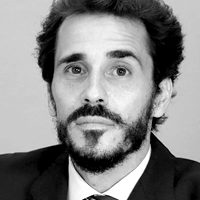
MADRID VAT FORUM 2022
VAT and the digital economy
There is no precise definition of what we can understand by digital economy. It could be said that it is a new way of doing business in which the normal interaction between the parties involved in the economic relationship is done through digita l platforms that put in contact the parties who wish to purchase or exchange goods and services.
The phenomenon of the digital and also of the sharing economy is undergoing a real revolution today. An enormous effort is being made by national administrations, as well as supranational bodies, to ensure that this type of economy is taxed in the most reasonable and fair way possible. It is not an easy task as the economic reality is much faster and dynamic than the legislator.
In the field of VAT there are many challenges posed by this new type of economy such as whether users of digital platforms act as entrepreneurs or in a private capacity or what is the role those intermediary platforms are playing in this type of operations.
10th February 2022
These and other issues will be discussed throughout the day in Madrid Forum 2022
Agenda
9:30 - 9:45
9:45 - 10:30 ◥
EU Commission’s initiative to adapt the VAT System to the digital economy
On July 15th 2020 the EU Commission adopted an action plan for fair and simple taxation. One of the policy actions included on the plan is the so called “VAT in the digital age package” where the following actions are considered: moving towards a single EU VAT registration, further extending the OSS and IOSS, modernizing VAT obligations, facilitating e-invoicing and adapting the EU VAT framework to the platform economy.

Agustín Míguez Pérez
VAT Policy officer DG TAXUD
VAT Unit European Commission.
10:30 - 11:15 ◥
How the digital economy has changed the way we consume. VAT and cross border supplies of services and intangibles.
The rapid growth of the digital economy has led to a shift in consumption patterns. The traditional demand for consumer goods is being transformed in many cases into subscriptions to paid services. All this has an impact on VAT. Place of supply rules, reporting and VAT collection processes in many cases do not respond to these new forms of consumption based mainly on the provision of intangible digital services. Different jurisdictions around the world, including the EU, are taking measures to adapt to this new economic reality.

Fabiola Annacondia
Principal VAT Specialist, IBFD
11:15 - 11:45
11:45 - 12:30 ◥
Digital platforms acting in their own name? The impact of the Fenix International case (C-695/20) on the digital economy.
In December 2020, the United Kingdom´s First Tier Tribunal requested the European Court of Justice (ECJ) for a preliminary ruling which can have a significant impact on the digital economy. The question referred seeks clarification on whether Article 9a of the VAT Council Implementing Regulation exceeds the scope of Article 28 of the VAT Directive. This means, in practice, that the ECJ may need to clarify when an intermediary, like a digital platform, is acting in its own name and, therefore, can be considered as a deemed supplier.

David Hummel
Legal Secretary, Cabinet Advocate General Kokott, European Court of Justice.
Associate Professor University de Leipzig.
12:30 - 13:15 ◥
EU Ecommerce VAT reform: experiences, lessons learned and suggestions for future improvements from a business perspective.
More than six months have passed since the entry into force of the reform of the E-commerce VAT package. It is time to evaluate the changes introduced, what the results have been and what could be improved to make the system work better in the future.

Sophie Claessens
Director Public Policy, EU, Tax & Payments.
Amazon Europe.
13:15 - 15:15
15:15 - 16:00 ◥
VAT and the sharing economy. Future challenges and what´s next?
The business models developed in the field of the sharing economy are characterized by the use of digital platforms that connect people or companies that offer certain services with people who intend to acquire them. The way in which these types of activities should be taxed has been the subject of constant debate in recent times. Concepts such as mediation, the degree of human intervention or the taxable status of the providers of these services must be reviewed to adapt them to this new economic reality.

Fernando Matesanz
President Madrid VAT Forum.
Managing Director Spanish VAT Services Asesores.
16:00 - 16:45 ◥
Digital Economy and the European Court of Justice (ECJ).
The impact that the digital economy is having in the field of VAT is enormous and the ECJ is no stranger to all this. New technologies and new types of economy are reflected in some of the ECJ´s decisions. Through this presentation some of the judgments dealing with this new way of doing business will be reviewed.

Francisco Javier Sánchez Gallardo
State Treasury Inspector.
Financial Counselor Spanish Embassy in Brazil.
Former Member of the Central Economic-Administrative Court.
Former Deputy Director (VAT) in the Spanish Sub-directorate General of the Directorate General of Taxes.
16:45 – 17:00
End of the day.
MADRID VAT FORUM 2022
It is carried out thanks to the effort and support of:
